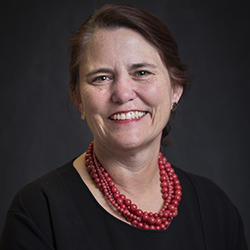Depression and Mental Illnesses Don’t Discriminate
The deaths of chef and TV host Anthony Bourdain and fashion designer Kate Spade elicit a common question: “How could people so successful and so wealthy — who seem to have everything — commit suicide?”
The answer is that depression and other mental illnesses don’t discriminate. They affect people from all walks of life and from all classes and income levels. Depression is an illness of the brain and, just like cancer or heart disease, being wealthy and successful is no protection from getting it.

Suicide rates in Arizona increased 17.3 percent in Arizona between 1999 and 2016, according to a report released Thursday by the Centers for Disease Control and Prevention. Nationally, the rate increased nearly 30 percent over the same time period, impacting both men and women and all ethnic groups. In 2016, 1,256 people in Arizona committed suicide, making it the eighth leading cause of death in the state, according to the Arizona Department of Health Services.
Trying to make sense of why someone commits suicide is almost always difficult, if not impossible.
Severe depression often distorts a person’s thinking. They can feel their pain is intolerable with no hope for improvement, leading to thoughts of suicide. It doesn’t matter if you are wealthy and famous; depression can seriously cloud your judgment.
Shame and stigma still surround depression and other mental illnesses, and too often impede a person’s ability to seek help.
Unlike other serious health problems, depression is not immediately obvious to see, and some people think it is not serious, or that you can “just snap out of it.” We all have periodic times of feeling sad, but major depression is persistent, has many other symptoms beyond just sadness and has significant effects on a person's ability to function day to day.
If you think a friend of loved one may be in trouble, it’s important to take the initiative to approach them because depression can affect a person's ability to act on their own to get help. Often the suffering person needs others to assist them in getting treatment. One can begin by saying, "I notice you just don't seem to be yourself lately, and I'm worried about you."
It is OK to ask a depressed person if they have been having thoughts of suicide. Such thoughts are not uncommon for depressed people, and it is a help to them for others to ask about it. Questions about suicide don’t trigger the thoughts; instead, they reassure the person with depression that others care about them, take their problem seriously and are ready to help.
If you know someone is having thoughts of suicide, it is important that those who care about them make sure they are evaluated by a professional and don’t leave them alone until this happens.
You may also call the National Suicide Prevention Lifeline at 1-800-273-TALK (8255).
Dr. Carol Olson is a professor of psychiatry at the University of Arizona College of Medicine – Phoenix and chairman of the Department of Psychiatry at Maricopa Integrated Health System.
About the College
Founded in 2007, the University of Arizona College of Medicine – Phoenix inspires and trains exemplary physicians, scientists and leaders to advance its core missions in education, research, clinical care and service to communities across Arizona. The college’s strength lies in our collaborations and partnerships with clinical affiliates, community organizations and industry sponsors. With our primary affiliate, Banner Health, we are recognized as the premier academic medical center in Phoenix. As an anchor institution of the Phoenix Bioscience Core, the college is home to signature research programs in neurosciences, cardiopulmonary diseases, immunology, informatics and metabolism. These focus areas uniquely position us to drive biomedical research and bolster economic development in the region.
As an urban institution with strong roots in rural and tribal health, the college has graduated more than 1,000 physicians and matriculates 130 students each year. Greater than 60% of matriculating students are from Arizona and many continue training at our GME sponsored residency programs, ultimately pursuing local academic and community-based opportunities. While our traditional four-year program continues to thrive, we will launch our recently approved accelerated three-year medical student curriculum with exclusive focus on primary care. This program is designed to further enhance workforce retention needs across Arizona.
The college has embarked on our strategic plan for 2025 to 2030. Learn more.